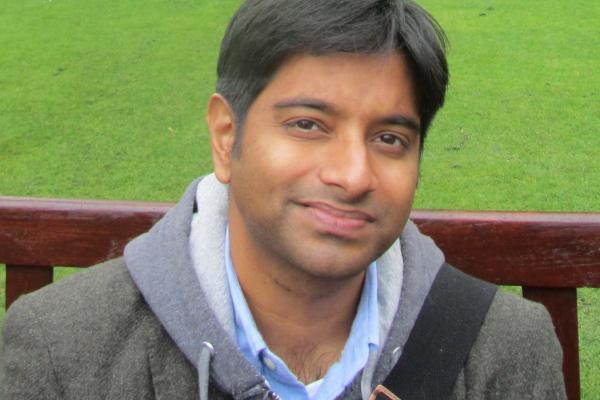
Mon, November 16, 2015
2:00 pm - 3:30 pm
2130 Derby Hall
For more information and to register for this event, visit the Mershon Center website.
"Regimenting Migrants: Post-colonial Nationalism and the South Asian Diaspora"
Ishan Ashutosh is a critical human geographer whose work encompasses the study of migration, the politics of race and ethnicity from an international and comparative perspective, and urban studies. His research examines the multiple and contested representations of South Asia through projects situation in migration and area studies. The first research project focuses on transnational politics of South Asian diasporas in multiple urban centers in the United States, Canada and Britain.
The second research project examines the constructions of South Asia in the social sciences as a site of knowledge production. Ashutosh has published his work in the journals of Citizenship Studies, Urban Geography, Geopolitics, and Diaspora.
Prior to joining the Department of Geography at Indiana University, Ashutosh was a lecturer at Northumbria University in Newcastle, U.K., and a post-doctoral fellow at The Ohio State University.
He holds a Ph.D. in geography from Syracuse University, a master's in social sciences from University of Chicago, and a bachelor's in history from State University of New York at Buffalo.
Abstract
This talk examines the shifting relations between the Indian nation-state and the South Asian diaspora. Following the liberalization of the Indian economy in 1991, the Indian diaspora began to play a central role in post-colonial nation-building. No longer held at arm's length from the post-colonial state, the de-facto position of the Indian government since partition and independence in 1947, today the Indian state treats its diaspora as a resource that plays a crucial role in economic reforms, particularly in the search for foreign investment and new consumer markets in India.
As Ashutosh will discuss, the Indian diaspora, whose population stands at approximately 25 million people, is not entirely re-integrated into the Indian nation, however. Rather, elite segments, particularly those in the United States, are targeted as reflective of the "Global Indian." Even for these groups, the government of India has introduced a number of cultural programs and tiers of citizenship that stop short of granting full citizenship to its diaspora. Ashutosh will consider how these relations continue to signal an ambivalence between national belonging and diasporic incorporation. He will also look at how the changing status of the Indian diaspora vis-a-vis the Indian nation-state produces new divisions within the South Asian diaspora.
